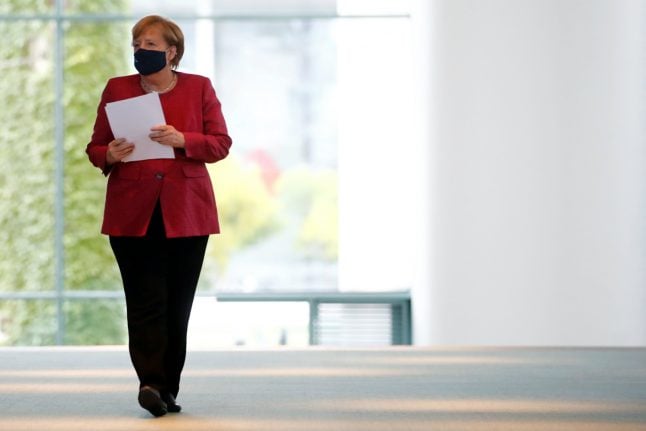As the country grapples with rising rates, Chancellor Merkel wants to meet the leaders of the 16 states in person rather than online for the first time in seven months.
They are set to discuss the coronavirus situation in Germany and how to go forward.
The conference will be held in a “physical presence format” at Merkel's request, Bild newspaper reported. A government spokesman confirmed the on-site meeting and announced that Merkel would then hold a press conference with the chairman of the state premiers' conference, Michael Müller, mayor of Berlin, and his deputy, Bavaria's head of government Markus Söder.
The last full on-site meeting was on March 12th, when the government and states decided to shut down social and economic life in Germany because of the rising coronavirus rates.
Bild reported that in a video conference with the heads of the state chancellery, Helge Braun justified the need for an in-person meeting due to the dramatic infection situation in Germany. The country has seen more than 4,000 new daily confirmed Covid-19 cases in recent days, resulting in several hotspots.
According to the participants of that event, Braun was quoted as saying that an open debate should be held which could have “historical dimensions”.
The meeting on Wednesday will also deal with the controversial ban on accommodation for travellers from coronavirus risk areas within Germany.
READ ALSO: Growing calls for clearer rules across Germany amid coronavirus crisis
In most federal states, the rule applies that people from regions with more than 50 new infections per 100,000 within a week can only be accommodated in a hotel if they can show a current coronavirus test with a negative result. This is often criticised as disproportionate, and raises questions about the use of tests and capacity.
Due to federal state differences, it's also been slammed as creating confusion for residents.
Vocabulary
Physical presence format – (das) physisches Präsenzformat
Rule – (die Regel)
On-site meeting -(das) Vor-Ort-Treffen
Accommodation ban – (das) Beherbergungsverbot
We're aiming to help our readers improve their German by translating vocabulary from some of our news stories. Did you find this article useful? Let us know.



 Please whitelist us to continue reading.
Please whitelist us to continue reading.
Member comments